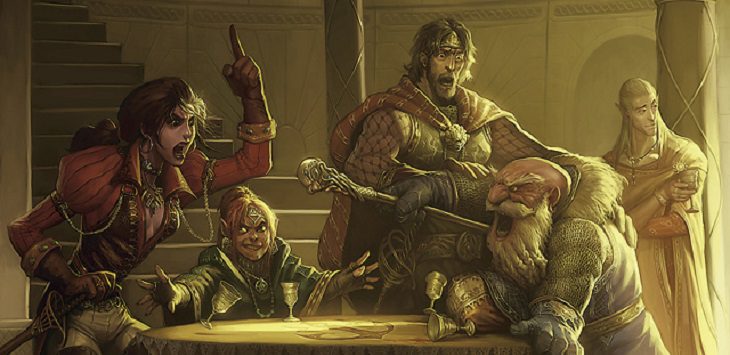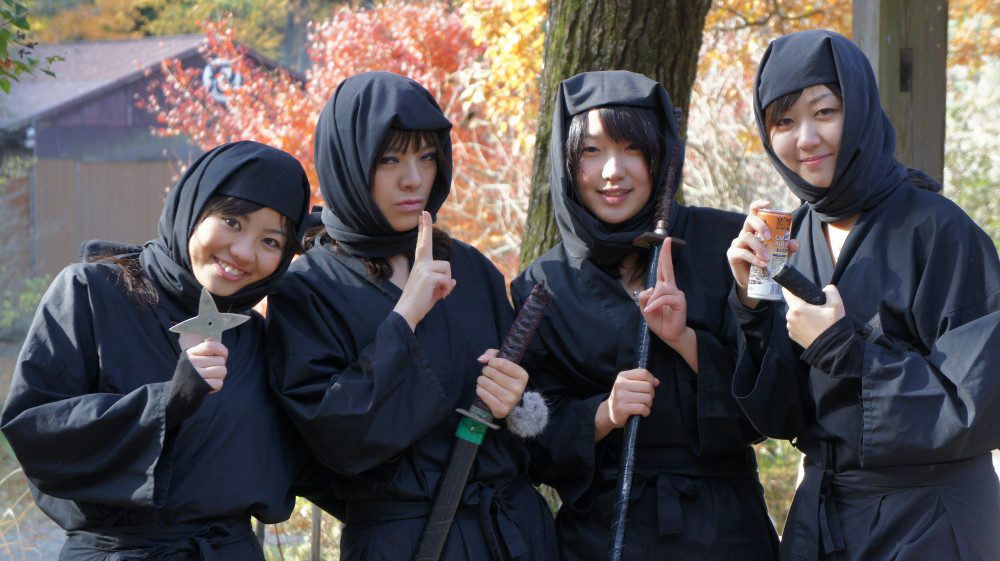Rabbit Season
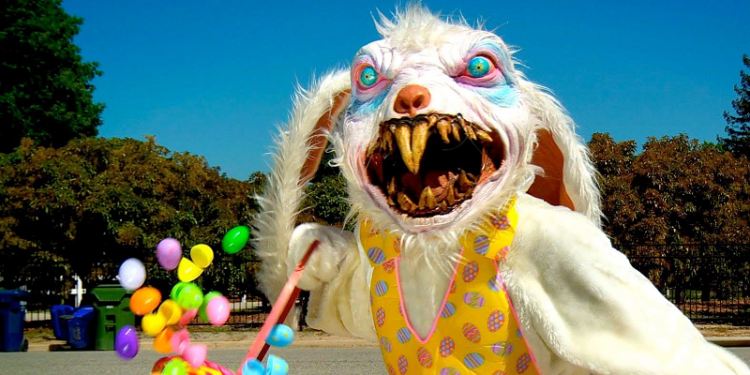
Another US holiday is upon us, and while it probably sees the third most holiday-themed tabletop content, it’s a distant third. There is just no way Easter competes with Christmas and Halloween on the homebrew content front, ya know? It’s not Easter’s fault, bunnies are only so evocative an image. You get your Monty Python bunnies, or your zombunnies, but that is usually where the joke ends. For the most part, that’s fine. Sniffles and Stomples did a lot of heavy lifting for my amusement when I dragged people to my endless Plane of Mischief farming in EverQuest. What can I say? I was one of the original discoverers, and I have a weakness for having as many clickable items as possible. Regardless, killer bunnies are what we generally see. I think that’s a shame. There are a lot of recognizable rabbit figures from literature and popular culture. In fact, most are even distinct enough to build archetypes around. Let’s jump into it. It’s rabbit season – not duck season.
Leporidane Traits
It’s not enough to just have archetypes inspired by bunnies. We’ll need a race of playable bunny people. It will need to be bunny-people because most famous rabbits (and hares) we’ll be covering here are humanoid. I mean, we could discuss Watership Down at length, but I’m choosing to focus on bunny people. We have Bugs, Lola, Roger, the White Rabbit, the March Hare, and Usagi Yojimbo (he’s a samurai, which is easy to find an archetype for, so I won’t be including him) – and probably others I am missing that aren’t low-hanging fruit. However, I can’t reach my arm up very high after all the reconstruction on it, so I love low-hanging fruit.
Ability Score Increase. Your Dexterity score increases by 2.
Age. Live fast, die young, probably be some a nice meal for someone. That’s the life for the Leporidanes. Most live between 20-25 years, reaching adulthood at 3 years of age.
Size. Leporidanes are between 4 and 5 feet tall, weighing between 90 and 140 pounds. Your size is medium.
Speed. Your base walking speed is 30 feet.
Prey Sense. You cannot be surprised, except when incapacitated by something other than nonmagical sleep.
Thump. Leporidanes may rouse everyone from slumber in a 30 foot area as an action.
Constant Alert. You have advantage on all Wisdom (Perception) checks to spot potential danger, and on Strength (Athletics) and Wisdom (Survival) checks while being actively pursued.
Darkvision. You can see in dim light within 60 feet of you as if it were bright light, and in darkness as if it were dim light. You can’t discern color in darkness, only shades of grey.
Languages. You can speak Leporidanish, which is a series of high-pitched intonations without a written form. You can speak, read, and write Common.
Subrace. The Leporidanes have long separated into two distinct groups: the Leveretesians – who love travel and adventure – and the Lagamorphites – who prefer to remain ensconced in civilization.
Lagamorphites
Lagamorphites learned long ago that one of the ways to remain safe from the dangers of the world is to learn the rules of it and play along. Lagamorphites often become indispensable aides and advisors, or become renowned entertainers. Performing is key, no matter how you slice it.
Ability Score Increases. Your Charisma score or Wisdom score increases by 1.
Put on a Show. You have proficiency in one of the following: Deception, Performance, or Persuasion
Ingratiating. When you roll a 1 on a Charisma ability check or saving throw, you may reroll the die with advantage and must use the result.
Leveretesians
Adventure possesses an inherent level of danger that not all Leporidanes are comfortable with. Those that are wandered off long ago, founding far-flung enclaves of like-minded individuals with an insatiable love of exploration and adventure. Leveretesians are likely to be found all over the known world, but few stay in one place for any length of time. Only when the Leveretesians are ready to settle down and raise a family do they choose a home – usually returning to the place of their birth.
Ability Score Increases. Your Constitution score or Intelligence score increases by 1.
Traveler. Your base walking speed increases to 35 feet, and you do not suffer exhaustion from forced marching.
Quick-Thinker. When you roll a 1 on an Intelligence ability check or saving throw, you may reroll the die with advantage and must use the result.
Notes: Bugs Bunny, Lola, the March Hare, and Usagi Yojimbo would be Leveretesians, while Roger Rabbit and the White Rabbit would be Lagamorphians. You could argue the March Hare might be a Lagamorphian, but I would say his madness (or aptitude at law) might actually prove him to be a Leveretesian.
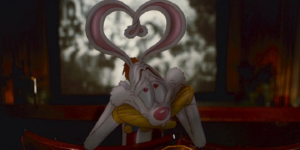
College of Slapstick (Bard College)
Bards who join the College of Slapstick know there is no comedy quite like physical comedy. There is a universal understanding of the performances that are often lost in nuanced musical and dramatic performances. Bards who seek mastery within this college desire to reach the largest audience possible, providing broad enjoyment for as many people as possible.
Time and Distance
Beginning when you join the College of Slapstick at 3rd level, you learn one of the secrets to comedy: time and distance. Whenever you give a target Bardic Inspiration, you may opt to include one of the following circumstances as part of the bonus action:
- Describe a pratfall you take that leaves you prone
- Describe how you clumsily injure yourself – inflicting 1d6 damage on yourself, which cannot be reduced or resisted
- Describe how you make a mess of your situation. Choose between suffering disadvantage on your next attack roll, or granting advantage to the next attack to target you before the end of your next turn
Doing so allows you to roll an additional 1d4 along with the bardic inspiration die you are granting, and allows the target of the bardic inspiration die to make a saving throw against being frightened if they are currently frightened. After choosing any of the above options, immediately end your turn.
The Comedian
Starting when you select this college at 3rd level, your performances bring joy to the audience. When you perform for at least ten minutes, you may target a number of audience members equal to half your Bard level. Audience members you target may choose to gain one of the following for the next 8 hours:
- Their maximum hit points increase by your Charisma modifier
- Advantage on saving throws against the frightened condition
- Treat any result of a 1 as a 2 for any die spent to heal them
Once you have used this feature, you may not use it again until you complete a long rest.
Competently Incompetent
At 6th level you have mastered the art of looking like you are succeeding by accident. As a reaction to making an attack or casting a spell, you may make a contested Charisma (Performance) ability check against the target(s) of the attack or spell’s Wisdom (Insight). If you succeed, you either have advantage on the attack, or your opponent(s) has disadvantage on the saving throw. You must describe how the attack or spell appears to go awry, but ultimately work.
You may use this feature a number of times equal to your Charisma modifier (a minimum of once). You regain all expended uses when you finish a long rest.
Timing is Everything
When you reach 14th level, you have mastered the art of comedic timing. When you successfully hit a target, or a target fails a saving throw against your spells you may spend a bardic inspiration die to cause one target to suffer a minor indignity, such as their pants falling down, screaming in an unbecoming fashion, etc. This indignity does not have any negative effects on the target, but those who view the indignity cannot contain their laughter. Choose up to five creatures who view the indignity. They must succeed on a Wisdom saving throw or suffer the effects of hideous laughter. You do not need to concentrate on this effect.
Notes: I think I mentioned I love bards. This is the college Roger Rabbit would have chosen, and I think it gets across the core slapstick concepts pretty well. This does require a bit more active player description than other options, but I think that’s all for the better. Describing your actions is always a positive. There is some risk/reward here, and hopefully the commentary the features provide on comedy comes across.
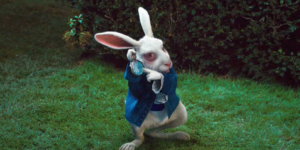
Oath of Suits (Paladin Oath)
These paladins align themselves with one of the four noble courts associated with the suits of the playing cards. These suits went by other names in ages past – such as wands, swords, cups, and pentacles – but are now commonly referred to as diamonds, clubs, hearts, and spades. To join these courts, you must swear fealty to the ruler of each court and abide by their guiding rules. Each court requires slightly different oaths, but each herald – the name given to paladins adhering to these oaths – expresses similar skills in order to maintain the semblance of balance amongst the suits.
Tenets of the Suits
Paladins of the Suits share many core tenets, though there is one that varies based upon the court they serve.
Loyalty. There is no higher word than that of your liege.
Order. There is a hierarchy in all things, and it should be followed.
Punctuality. To keep someone waiting is akin to lying about your intent, and is not condoned. All effort must be made to keep appointments.
Enforcement. You enforce the word of your liege above all else.
Oath Spells
You gain oath spells at the paladin levels listed.
Oath of the Suits Spells
| Paladin Level | Spells |
| 3rd | disguise self, expeditious retreat |
| 5th | enlarge/reduce, see invisibility |
| 9th | clairvoyance, haste |
| 13th | dimension door, polymorph |
| 17th | animate objects, teleportation circle |
Channel Divinity
When you take the oath at 3rd, you gain the following two Channel Divinity options.
Heraldry. As an action, you present the symbol of your liege and make a proclamation in their name, using your Channel Divinity. One creature of your choice you can see is emboldened by your display, becoming invigorated. The creature gains temporary hit points equal to your Charisma modifier (minimum bonus of 1), and gains a bonus to attack and damage rolls equal to half your Charisma modifier (minimum bonus of 1, rounded down) for 1 minute.
You can end this effect on your turn as part of any other action. If the target falls unconscious, this effect ends.
Wild Card. As an action, you are imbued with the random nature of the cards. For 1 minute, any time you make an ability check, attack roll, or saving throw roll a 1d6 and add the result.
You can end this effect on your turn as part of any other action. If you fall unconscious, this effect ends.
Aura of Temporal Awareness
Starting at 7th level, you and friendly creatures within 10 feet of you have advantage on saving throws against being incapacitated, paralyzed, or stunned.
At 18th level, the range of this aura increases to 30 feet.
Late
Beginning at 15th level, you are always under the effects of an expeditious retreat spell.
Ace in the Hole
At 20th level, you can assume the form of the personification of your suit. This might be a monolithic stone guardian wielding a club, or a figure composed of diamonds, for example. Using your action, you undergo a transformation. For 1 minute, you gain the following benefits:
- Your may cast command as a bonus action without expending a spell slot.
- Non-allied dying creatures within 30’ of you have disadvantage on death saving throws.
- You critically hit on an 18-20.
- Your critical hits deal an additional 10 slashing damage.
Notes: This is what I imagine the White Rabbit might have been like before he was just an analog for old age. He was the herald of the queen, but he wasn’t much of a traditional bard or anything. That generally leaves knights, and the loyalty of the rabbit is such to believe oaths would be involved. There is an obsession with time, ensuring you can carry out tasks, and even serving as executioner, if need be. It’s certainly possible the March Hare would have fallen into this archetype before he went mad. Then again, he could have been any archetype, we don’t know! I would think he might have been one of the Oath of the Suits paladins, though. He’s just too hung up on time.
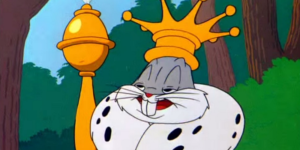
Prankster (Roguish Archetype)
While some rogues are about eliminating targets, stealing precious works of art, weaving together magic and trickery, or even planning elaborate scenarios that come to fruition, the prankster derives enjoyment from getting the last laugh. While not always mean-spirited, the prankster delights in making others look foolish. If the situation calls for it, the pranks can take a sinister turn – though they usually have a justification for doing so.
Eye for Hijinks
Starting at 3rd level, you have advantage on any check made with thieves’ tools to set or disarm traps, and on any Wisdom (Perception) check made to spot traps.
Left Turn
Beginning at 3rd level when you select this archetype, when you use your Cunning Action to Dash or Disengage, you may move through spaces occupied by hostile creatures, provided you do not end your turn in the occupied space.
Further, you may also squeeze through openings without suffering any penalties.
What is Occurring, Healer?
Upon reaching 9th level, you may attempt to confuse a creature attacking you within melee range. As a reaction to being targeted with a melee attack, you may force the attacker to make an Intelligence saving throw, against a DC of 8 + your Proficiency Bonus + your Charisma modifier. If the opponent fails, the opponent cannot make attacks against you until the end of your next turn. If the opponent succeeds, you take half damage from the attacks your opponent makes against you until the end of your next turn, instead.
You use this feature a number of times equal to your Charisma modified (minimum of 1). Completing a long rest replenishes all uses of this feature.
Word Circle
Starting at 13th level, you are accomplished at running circles around others with your words. You are adept at not only getting people to do what you want, but making it seem like it was their idea. While involved in a verbal discussion with a creature who is expressing a different viewpoint than you, you may have the creature with a differing view make an Intelligence saving throw, against a DC of 8 + your Proficiency Bonus + your Charisma modifier. If the creature fails the saving throw, the creature suffers from a suggestion to not only agree with your argument, but to internalize it as their idea. This effect does not require concentration, and the creature remains unaware you were the source of the suggestion, even if it is broken or expires.
Once you have used this feature, you may not use it again without completing a long rest.
Insult to Injury
Beginning at 17th level, when you deal sneak attack damage, the damaged creature must make a Dexterity saving throw, against a DC of 8 + your Proficiency Bonus + your Dexterity modifier. If the creature fails the saving throw, the creature is knocked prone and suffers disadvantage on ability checks, attack rolls, and saving throws until the end of your next turn.
A creature who successfully saves may not be targeted by this feature for the next 24 hours.
Notes: This is Bugs Bunny, through and through. This might be at odds with his subrace, but it just means he rolled well for his Charisma. People do pick combinations outside of pure stats, guys! There are elements of intelligence, charm, and aggression. Lola would probably fit in here well, too. As would the Tiny Toons. The idea is a clever prankster who also has a way with words. There is an argument to be made here for a bard college, but I think of Bugs more as a rogue, personally. Anyway, this does require some double-stat dipping, but I think it is appropriate.
Wrapping Up
As always, these are made for fun, but also with an eye for game balance and use at a table. I think these concepts would require the correct game – as with all third-party content – but they could be a lot of fun without requiring a change in game power. It’s not like these have received a whole lot of playtesting (read: none), but for a holiday game, it could be a great to try out!

